editor's pick
-

-
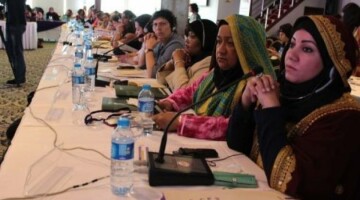
Today in history: First Middle East Women’s Conference
The first Middle East Women’s Conference was held in Amed, city of the Northern Kurdistan on May 31, 2013. 250 women from different countries participated in the conference. The women came together to share their experiences and ideas at the three-day conference.
-
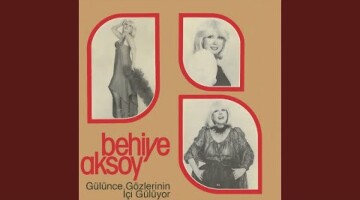
Song of the day: Behiye Aksoy/ Gülünce Gözlerinin İçi Gülüyor
When we want to listen to Gülünce Gözlerinin İçi Gülüyor (Your eyes smile when you smile) song, we remember Zeki Müren and Behiye Aksoy. Behiye Aksoy She was born in 1929. She was one of the most famous singers of her time and she received a platinum diadem for her success from her record company. She left her career in music in 1980. She suffered from Alzheimer’s disease and died in İstanbul on 31 May 2015.
-
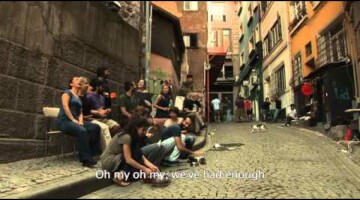
Song of the day: Kardeş Türküler/ Sound of Pots and Pans
Kardeş Türküler is a contemporary ethnic/folkloric band in Turkey. It was formed in 1993 with a series of stage performances given by the music branch of the Folklore Club at Boğaziçi University in Turkey. Their song “Sound of Pots and Pans” was released in 2013 for the Gezi Park protests. During the protests, the protesters in Istanbul grabbed their crockery and spread the echoing sound of pots and pans from their balconies and windows.
-

Movie of the day: The Book Thief
The Book Thief is based on the 2005 novel of the same name by Markus Zusak. The film is about a young girl called Liesel living with her adoptive German family in Nazi Germany during World War II when she was nine years old. Her foster parents conceal a Jewish man named Max who has developed a close relationship with Liesel, teaches her to read, first in her bedroom, then in her basement. Recognizing the power of writing and sharing the written word, Liesel not only begins to steal books that the Nazi party is looking to destroy, but also writes her own story, and shares the power of language with Max.
-
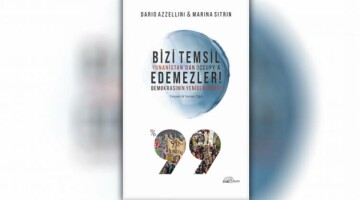
Book of the day: They Can’t Represent Us by Marina Sitrin/Dario Azzellini
They Can’t Represent Us is a book written by writer, professor, lawyer and activist Marina Sitrin and Dario Azzellini. It is based on extensive interviews with movement participants in Spain, Venezuela, Argentina, across the United States, and elsewhere. It is an expansive portrait of the assemblies, direct democracy forums, and organizational forms championed by the new movements, as well as an analytical history of direct and participatory democracy from ancient Athens to Zuccotti Park. The new movements put forward the idea that liberal democracy is not democratic, nor was it ever.
-

-
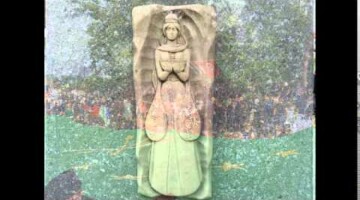
Song of the day: Gülcan Altan – Yistanbulako
Singer Gülcan Altan is from the Shapsugh tribe of Circassians. She was born in Samatya as the youngest daughter of a Circassian family. She performed as a soloist for many orchestras. While studying business at Trakya University, she started singing professionally. After graduating from the Turkish Music State Conservatory of Istanbul Technical University in 2005, she completed her Master′s degree at Yeditepe University. The singer has worked on ethnic music all around the world. Let’s listen to her song “Yistanbulako” together.
-
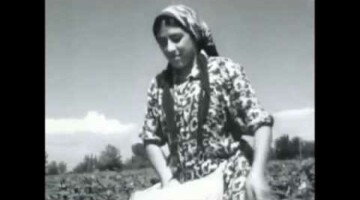
Song of the day: Tarla Qızları/ İlhamə Quliyeva
İlhamə Quliyeva was an Azerbaijani celebrity, actress and singer of Azerbaijani folk and classical music. Throughout her active musical career, she gained popular success in her respective genre of music and received Honored Artist of Azerbaijani SSR in 1982. She continued to work until she died on 25 February 2016.
-
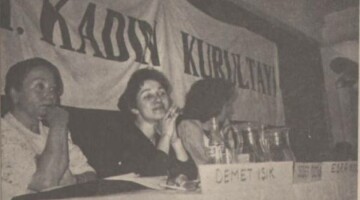
Today in history: First Women’s Congress in Turkey
Women’s organizations from different cities of Turkey, feminist groups, socialist women, independent women, Human Rights Association (IHD) Women’s Commission, and about 2500 women from other countries participated in the First Women’s Congress held in Turkey on May 19, 1989 “to discuss the problem faced by women for being a woman, to meet each other and to raise their voices.”
-
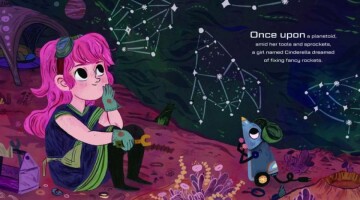
Book of the day: Interstellar Cinderella/ Deborah Underwood
Today, we recommend you a children’s book: Interstellar Cinderella written by Deborah Underwood. Once upon a planetoid, amid her tools and sprockets, a girl named Cinderella dreamed of fixing fancy rockets. Deborah Underwood has written many best-selling children’s books such as Part-time Princess, The Quiet Book and Part-time Mermaid. With a little help from her fairy godrobot, Cinderella is going to the ball. But when the prince's ship has mechanical trouble, someone will have to zoom to the rescue! Cinderella fixes the robot dishwashers and zoombrooms in her care, but late each night she snuck away to study ship repair. Our modern Cinderella is in space who likes to fix everything. She is clever, strong and brave.
-
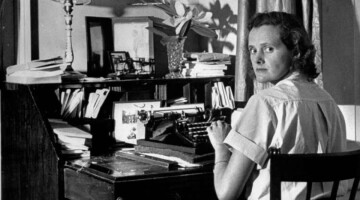
Portrait of the day: Daphne du Maurier
Daphne du Maurier was an English author and playwright. Many of her stories have been adapted into films, including Rebecca, Frenchman's Creek, My Cousin Rachel, and Jamaica Inn, and the short stories The Birds and Don't Look Now/Not After Midnight. Daphne du Maurier was born in London on May 13, 1907. She was the middle of three daughters of prominent actor-manager Sir Gerald du Maurier and actress Muriel Beaumont.
-

Song of the day: Dina/Leila Qasim
Dina, a singer from Southern Kurdistan, sings the Leila Qasim song. The song in Sorani language, a dialect of the Kurdish language, is about the life of Leila Qasim. Leila Qasim or Leyla Qasim was born in 1952 in the Xaneqîn located in Iraq, close to the Iranian border. She had a significant impact on Kurdish students at the University of Baghdad. She was arrested and tortured by the Iraqi Ba'ath regime but she never bowed down and she always stood by the Kurdish freedom movement. After a short and show trial, she was sentenced to death. On 12 May 1974, Leila Qasim and her friends were executed by hanging by the Iraqi Ba'ath regime. She sang Kurdish national anthem “Ey Raqib” when she was being executed.
-
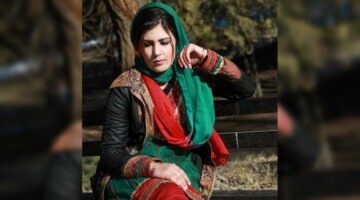
Portrait of the day: Mina Mangal, the voice of Afghan women
Mina Mangal was born in 1992 and she was shot dead on May 11, 2019. She was not only a prominent Afghan journalist, political advisor, and women's rights activist but also a teacher, poet, midwife, and writer. Despite her young age, she managed to do many things in her short life; maybe this is why she became a target of the reactionaries in her country.
-

Song of the day: Komîna Tevna Jinî/Mizgîn
Komîna Tevna Jinê’s song Mizgîn written by Devrim Demir was released in 2020 by Kom Müzik. Mizgîn was a Kurdish singer known as Hozan Mizgîn by Kurdish people. Hozan Mizgîn was born in 1962 as Gurbet Aydın in the Bileyder village of Batman. After the military coup took place in Turkey on September 12, 1980, she went to Europe to expand Kurdish culture and art. In those years, her songs about the resistance, pain and life of the Kurdish people spread everywhere.
-

Portrait of the day: Martha Graham “Dancer of the Century”
Martha Graham was an American modern dancer and choreographer. She was born in Pennsylvania on May 11, 1894. In 1916, she began her studies at the newly created Denishawn School of Dancing and Related Arts, founded by Ruth St. Denis and Ted Shawn.
-

Song of the day: Adalılar/Bizim Kadınlar (Our Women)
Adalılar is a music group formed in the early 1990s. The group consisting of many precious musicians released its albums “Örgütlemişler Baharı (They've organized the spring)”, “Meydan Türküleri (Folk Songs for Protests)” and “Adalılar Türkü Söyler (Adalılar sing Folk Songs)”. After a break, the music group began to work again under the umbrella of the Önder Babat Cultural Center in 2006.
-

Today in History: Female silk-factory workers’ strike in Turkey’s Bursa province
In 1908, the struggle between laborers and capitalists ended in a burst. Female silk-factory workers in Turkey’s Bursa province went on a strike on May 10, 1908, demanding equal pay for equal work and healthy work conditions and the strike lasted for three years. They held a protest in the yard of the Grand Mosque located near the Koza Han (a historic caravanserai) in Bursa province on May 10. This protest is known as the first women’s protest in Turkey.
-
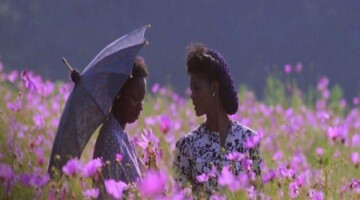
Movie of the day: The Color Purple
The Color Purple is a 1985 American drama film directed by Steven Spielberg, based on the Pulitzer Prize-winning 1982 novel of the same name by Alice Walker. The film was nominated for 11 Academy Awards. The film is about a woman named Celie, who is subjected to rape by her father and violence by her husband. She holds on to her life with the letters sent by her sister Nettie. Their father hides Nettie's letters from Celie. This film doesn’t end happily… But in the end, she meets Sofia, who is a powerful woman, and she learns many things from Sofia.
-
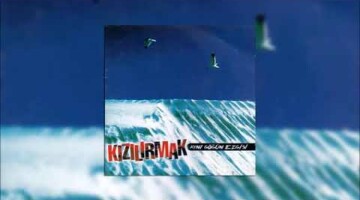
Song of the day: İlkay Akkaya/Denizlere
İlkay Akkaya is one of the well-known members of Grup Kızılırmak, a musical group. She was born on May 26, 1964, in Istanbul. After graduated from the Press High School at Marmara University, she joined Grup Yorum as the soloist. She released three albums with Grup Yorum. She got out of Grup Yorum together with Tuncay Akdoğan in 1988. In 1990, she founded the group Kızılırmak with Tuncay Akdoğan and İsmail İlknur. While at Kızılırmak, Akkaya also worked on her solo career. From 1990 to 1992 she was seen at the Birlik Theater in Ankara, where she played the role of Ballihan in the play Pir Sultan Abdal. She composed the score for the film Bir Küçük Bulut. She released her first solo album “Kül (Ashes)” in 1998 and then released her albums such as “Unutma (Don’t Forget-2001)”, “Yine (Again-2003)”, “Yalnız (Alone- 2005)”, “Umut (Hope-2013)” and “Hayat (Life-2015)”.
